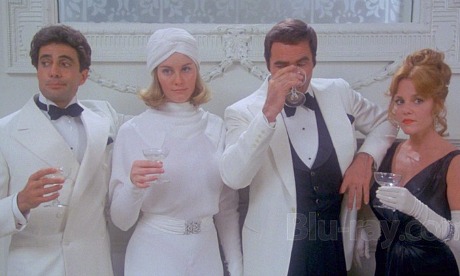A couple of days ago the Sheffield Doc/Fest screened th World Premiere of Mark Levinson‘s Particle Fever, which is basically about (I think) six scientists who managed to precisely identify and define the Higgs Boson or “God particle” — a subatomic element that informs the size and shape and contour of all physical matter, the missing cornerstone of particle physics. Its existence was proven with “the most expensive science experiment in history” in which the Large Hadron Collider was launched.
When HB was first eyeballed last July I wrote that “this is almost like the discovery of the black monolith on the moon in 2001: A Space Odyssey. And yet it’s been there all along. The supreme scientific equation…proven.” But listen to Murch talk about the topic — he puts you to sleep! If I didn’t know what this doc is about I would avoid it like the plague after watching this Murch interview. I intend to see it, of course.
Where’s the God/mystical stuff? The mention of intelligent design? The Kubrick angle? My eyelids are drooping, Walter…you’re killing me.
“The ‘intelligent design’ crowd is celebrating this all across America, you bet. I despise what Christianity has become in this country, but I happen to believe in intelligent design also, in a sense. There is obviously a unified flow and an absolute cosmic commonality in all living things and all aspects of the architecture. The difference is that I don’t attach a Bible-belt morality to this overwhelming fact. To me God is impartial, celestial, biological, mathematical, amoral, unemotional, miraculous and breathtaking.






